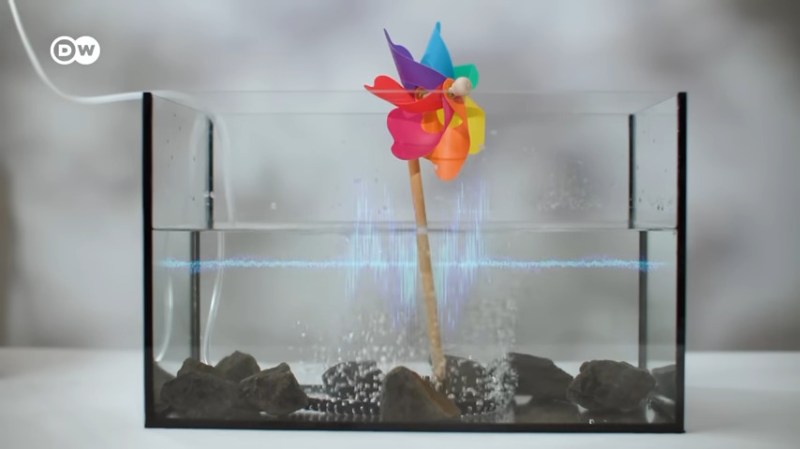
Since sound is the primary sense used by most ocean life, disruptions to the natural noise levels in the ocean from human activities can be particularly problematic for marine life. [DW Planet A] has a video describing some of the ways we can mitigate these disruptions to our friends under the sea.
Being noisy neighbors isn’t just a problem for whales but for everything down to the plankton at the base of the food web. Underwater construction like offshore wind installations get flak for being noisy, but technologies like bubble curtains can reduce noise output by up to 90% to the surrounding waters while still getting those nice low carbon energy benefits that prevent further ocean acidification and warming.
Cargo ship propellers are a trickier proposition due to their mobile nature, but work by shipping company Maersk shows a simple retrofit can minimize cavitation bubbles from propellers, saving fuel and reducing sound output by 75%. While companies are unlikely to install these retrofits on their own, they could be done during a ship’s normally scheduled time in dry dock. We wonder if toroidal propellers could help here as well.
Unsurprisingly, the worst offender for this problem is the oil and gas industry. Using seismic air guns to blast sound to search for fossil fuel deposits below the seabed, these rigs can instantly kill plankton and cause disruptions at long range. Fossil majors have started investing in marine vibroseis, a more subtle vibration technique that is also useful in shallower waters than the seismic air guns. This could again reduce impacts on marine life by 90% compared to current methods. As the energy transition continues, this impact will be reduced by 100% when exploration for marine fossil fuels ends.
If bubble curtains sound familiar, you may remember their use in containing detonation of unexploded ordinance during the construction of the Nord Stream 2 Pipeline, a very different type of subsea infrastructure project. We also have something for you if you’re more interested in tracking man-made objects (subs) underwater.
0 Commentaires